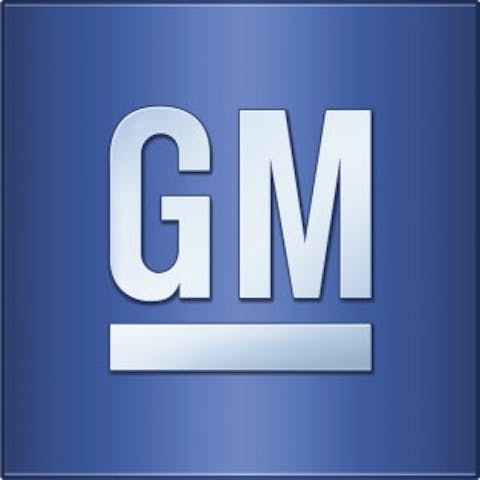This Auto Giant Is Strong as an Ox

Lofty targets
The company is chasing its ambitious dream of emerging as the world’s biggest automaker by 2018, surging past the reigning number one, Toyota Motor Corporation (ADR) (NYSE:TM), and runner-up, General Motors Company (NYSE:GM).
2012 Global Sales Tally
| Toyota | GM | Volkswagen |
|---|---|---|
| 9.75 million units | 9.29 million units | 9.07 million units |
2013 First Quarter Global Sales Tally
| Toyota | GM | Volkswagen |
|---|---|---|
| 2.43 million units | 2.36 million units | 2.27 million units |
The company is also trying to dethrone BMW as the world’s largest luxury car manufacturer by 2015. It is planning to launch complete sales offensive by expanding its Audi line-up to as many as 42 vehicles by 2015.
This growing focus on the luxury market is advantageous for two reasons. Firstly, margins are much higher than other passenger cars. Secondly, sales of luxury vehicles are more recession-proof, as wealthier buyers worry less about spending.
Volkswagen had an excellent 2012 with $15 billion in operating profits. This was higher than Toyota Motor Corporation (ADR) (NYSE:TM)’s $11.1 billion and General Motors Company (NYSE:GM)’s $7.9 billion.
The extreme market situation in Europe got the better of the company in the first quarter, leading to a drop of 26% in EBIT to around $3 billion. But, Volkswagen with typical stubbornness refused to change any of its annual targets in terms of sales and profits. In 2013, it is hoping to increase its sales and repeat its profit performance.
The road that leads to China
In 2012, Asia-Pacific was Volkswagen’s biggest sales destination accounting for 35% of total deliveries, compared to 33% in Western Europe. And the key lies with China, which has a huge role to play in realizing Volkswagen’s dream of becoming the biggest automaker.
China’s auto association estimates new-vehicle sales of over 20 million units this year. Meanwhile, KPMG’s 2013 automotive survey shows that China is the most preferred investment destination for almost 70% of survey takers.
Last year, Volkswagen sold 2.6 million vehicles in China, up 18.5% from 2011. Deliveries were up 24.6% to 2.8 million. In May sales were up 17.6% to 90,824 units. It is planning to sell three million vehicles in the country in 2013.
The company currently has 12 plants in the country with a production capacity of 2.8 million vehicles, and it sells around 60 models. It is adding more capacity to meet demand.
Volkswagen will pour around $13 billion into the country by 2015 on new facilities and products. It will build seven new plants and increase its production capacity to four million units annually by 2018. The entire investment will be funded from cash flows generated by the Chinese operations.
Volkswagen has started executing the plan and is presently constructing a new factory in Changsha, with an annual capacity of about 300,000 units. Construction is scheduled for completion by the end of 2015.
China is a key market for General Motors Company (NYSE:GM) and Toyota Motor Corporation (ADR) (NYSE:TM) as well. GM together with its joint ventures sells the maximum number of vehicles in China. It sold 2.84 million vehicles last year and demand is as strong as ever. General Motors Company (NYSE:GM) will be investing $11 billion here through 2016 to achieve a production capacity of 5 million units. In May, GM’s China sales were up by 9.4% to 252,942 vehicles.
Toyota Motor Corporation (ADR) (NYSE:TM) is out to make China its third one million unit market. However, since the second half of 2012 it was suffering from a fall in demand due to political tension between China and Japan. Although y-o-y sales had increased in January it had to do more with seasonality than any real increase in demand.
Now, there are some signs of improvement in the situation and Toyota Motor Corporation (ADR) (NYSE:TM) has reported a 0.4% increase in May sales to 79,000 units. During the first five months, sales are still down by 8.6%.
Providing diesel power to North America
Of late, Volkswagen has been faltering in the US markets with May numbers indicating a 1.7% decline. This could be worrisome given that North America accounts for around 10% of total deliveries. But Volkswagen has an ace up its sleeve which could change its fortunes in this market.
It is the top provider of diesel cars in the US, accounting for 72% of domestic diesel car sales. Diesel engines have been traditionally snubbed in North America due to their dirty emissions. But newer technology is fast changing this. The modern engines burn much cleaner while still delivering diesel’s considerably improved fuel economy.
If gasoline prices remain high in the long term, Volkswagen’s head start with this technology will be advantageous as consumers will definitely try to cut their fuel costs.
The US auto market was up 8.2% in May; General Motors Company (NYSE:GM) grew its sales by 3% and Toyota by 2.5%.
Last word
Volkswagen has a heart of steel. It is combating odds and setting challenging goals for itself. Irrespective of whether it can realize its dreams, growth is a given for Volkswagen, which makes it an excellent investment opportunity.
Eshna De has no position in any stocks mentioned. The Motley Fool recommends General Motors.
The article This Auto Giant Is Strong as an Ox originally appeared on Fool.com and is written by Eshna De.
Eshna is a member of The Motley Fool Blog Network — entries represent the personal opinion of the blogger and are not formally edited.
Copyright © 1995 – 2013 The Motley Fool, LLC. All rights reserved. The Motley Fool has a disclosure policy.



